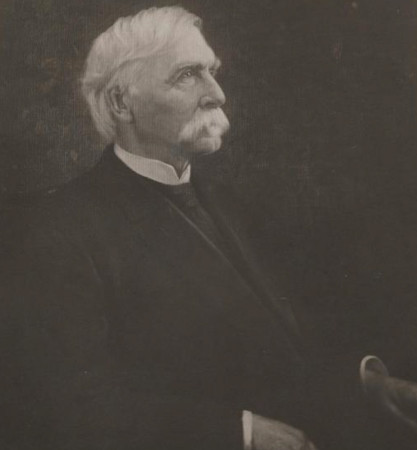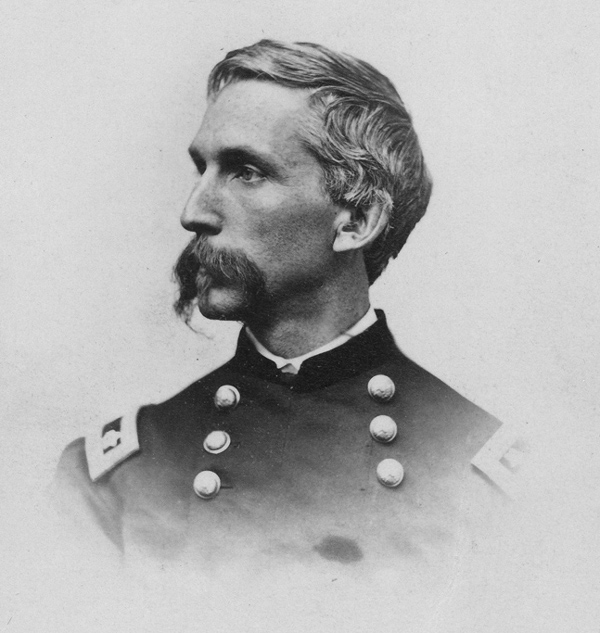PORTLAND, Maine — A Confederate rifle ball ripped through Col. Joshua Lawrence Chamberlain’s pelvis at the Siege of Petersburg, Virginia in June 1864. It ruptured his bladder and severed his urethra. The bullet mangled his guts beyond repair — but it took 50 agonizing years before he finally succumbed to his injuries.

Joshua Chamberlain died on Feb. 24, 1914 in Portland at age 85. He was the last man to die of his Civil War battle wounds and was, at the time of his death, the surveyor of customs in Portland. Maine Memory Network item 5178
He spent that half century in constant pain. He endured ceaseless bladder and testicular infections — in an age before antibiotics — and several unsuccessful operations.
He finally passed away from pneumonia and infection on the morning of Feb. 24, 1914 in a small white house at 499 Ocean Ave. in Portland. He was 85 years old.
Despite his ailments, he made good use of his last 50 years.
Chamberlain was promoted to brevet major general, watched Lee surrender at Appomattox, was awarded the Congressional Medal of Honor, commanded the state militia, served four terms as governor of Maine and was president of Bowdoin College for more than a decade.
Of course, before Petersburg, he and his 20th Maine Regiment had already saved the day, and perhaps the whole Union Army, at Little Round Top in Gettysburg, Pennsylvania in 1863.
Chamberlain moved to Portland after President McKinley appointed him to a largely ceremonial job at the federal customs house on Commercial Street in 1900.
He was lucky to get the job. Entering old age as a partially disabled veteran, his military pension was not enough to support his family and pay his constant medical bills.
- Civil War hero Joshua Chamberlain died in this house on Ocean Avenue in Portland on Feb. 24, 1914. He was 85. Troy R. Bennett | BDN
- The carriage house belonging to the residence where Joshua Chamberlain once lived on Ocean Avenue in Portland still bears a pair of Maltese crosses in relief on the doors. The cross was the symbol of Chamberlain’s 5th Army Corps. Troy R. Bennett | BDN
- The house at 499 Ocean Avenue in Portland, where Joshua Chamberlain died, as it looked in a 1924 city tax photo. Maine Memory Network item 69407
- Joshua Chamberlain’s death certificate.
Three days after his death on Ocean Avenue, Chamberlain’s body was escorted by four National Guard companies down Washington Avenue, over Tukey’s Bridge and down Congress Street to Portland’s City Hall. A crowd of thousands, including Governor William T. Haines, followed his flag-draped coffin into Merrill Auditorium for the funeral. An organist played Chopin’s funeral march and a bugler blew taps at the end.
Afterward, the funeral cortege made its way down Congress Street to Union Station where a special train bore him 20 miles north to Brunswick. There, he was laid beside his beloved wife, Fanny, in Pine Grove Cemetery, the last man to die of his Civil War wounds.









